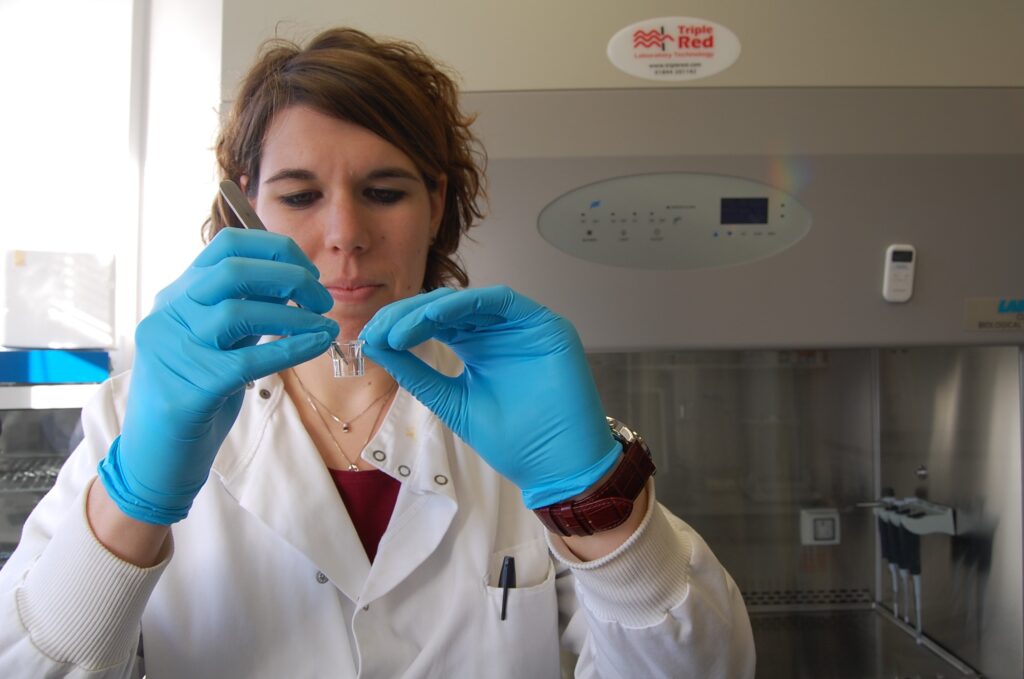Growing up in North-Eastern Italy, Martina had a passion for STEM from a very young age.
After completing undergraduate and postgraduate degrees at the University of Ferrara, Martina moved to Newcastle University. She started her PhD in tissue engineering in 2015, under the supervision of Professor Che Connon, who would go on to become her future business partner.
Martina has received several awards in recognition of her achievements, such as Newcastle University’s Enterprise Scholarship and a prestigious Enterprise Fellowship from the Royal Society of Edinburgh. She currently serves as CellulaREvolution’s Chief Scientific Officer, a spin-out she co-founded off the back of her PhD research.



